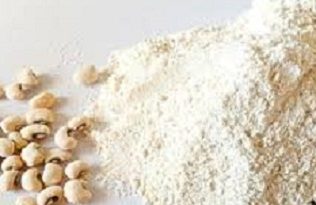Yogurt: Types, Health Benefits and Side Effects
Yogurt, also spelled yoghurt, yogourt or yoghourt, is one of life’s simplest, yet most pleasing foods.

It is a dairy product produced by bacterial fermentation of milk. The bacteria used to make yoghurt are known as yogurt cultures.
Specially for you >>> Breakfast Recipe: Mango Yogurt Smoothie
Yogourt starts with fresh milk or cream which is often first pasteurized, and then fermented with various living bacteria cultures, after that, it is incubated at a precise temperature to boost bacteria growth.
The culture ferments the lactose, which is the natural sugar found in milk to produce lactic acid that gives yogourt its unique flavor.
Table of Contents
Yogurt vs. Yoghurt: What’s The Difference?
Yoghurt is an alternative spelling of yogurt that is popular in British English. It can be used in all settings as its American equivalent yogurt. Though yoghurt is much more popular in British English than in American English, it is still not the main spelling.
Types of Yogurt
We have different types of yoghurt namely:
- Low fat or non-fat
Low-fat, or condensed-fat yogurt, is prepared with 2% milk. Non-fat yogurt is prepared with zero percent or skim milk.
- Kefir
Kefir is another type of yoghurt that contains probiotics and is easy to make at home. It is a liquid yogurt for drinking
- Greek yogurt
Greek yogourt is regularly used in Mediterranean-style cooking and dips. It is creamy and thick and can withstand heat better than regular yogourt.
It is further processed by straining regular yoghurt to remove the liquid whey resulting in higher protein content, owing to its thicker concentration.
However, the additional straining leads to lower calcium content. It is available in full fat, reduced or low fat and non-fat or zero percent.
- Skyr
Skyr can be likened to Greek yoghurt. Pronounced “skeer,” is an Icelandic-style yogurt that is high in protein, dense, and creamy.
When equated to regular yogurt, skyr needs 4 times the quantity of milk to make and comprises 2 to 3 times more protein.
- Frozen yogurt
Frozen yoghurts most times are seen as a healthful substitute to ice cream.
Though, a lot of frozen yoghurts have the same amount of sugar or even more as normal ice cream.
Furthermore, as stated by the National Yogurt Association (NYA), and I quote:
‘Not all so-called frozen yogourts contain live and active cultures. Some use heat-treated yogurts, which kill the live and active cultures’
- Non-dairy yogurt
Non-dairy yogourt replacements consist of coconut milk yogourt and soy yogourt.
Health Benefits Of Yogurt; Why Yoghurt Is Good For You
Yoghurt is a simple pleasure filled with nutrients and microflora to keep our system finely modified.
Made from fermented milk, yoghurt comes with many uses.
- Yoghurt is a common sweetened, fruity dessert or breakfast food in Western Europe. Also, it can be consumed as a drink or used in baking to give moisture and flavor or even made into some kind of cheese.
- Yogourt contains bacteria that aid digestions: hence, those with lactose intolerance or experiencing bloating, discomfort, or gas after drinking liquid milk or ice cream can often tolerate yoghurt without side effects.
- Lastly, health benefits depend on the type of yoghurt consumed. Added sugar and processing can make some yoghurt products unhealthy.
Side Effects: When Is Yogurt Bad For Me?
Please note that not all yoghurts are beneficial. Those without sugar or excessive additives can be a healthy addition to your diet, but then some have high quantities of added sugar and other ingredients that may not be healthy.
Natural ones can be a low-calorie, high-nutrient food filled with protein.
With yoghurt less is more – the lower the sugar, the better, providing it does not have any artificial sweeteners.
Summary
Yoghurt is a dairy nutrient-rich food that has been nurturing people for centuries. Produced by culturing milk, yoghurt gives vital nutrients such as protein, phosphorus, calcium, zinc, and B vitamins.
There are many types of yogourts to select from depending on your taste buds.
Health benefits range from promoting bone health (osteoporosis) to aiding digestion by relieving irritable bowel disease among others, though it all depends on the type of yoghurt consumed.



Pingback: Nigerian Yogurt ~ Which Yoghurt Is Best in Nigeria - 9jafoods